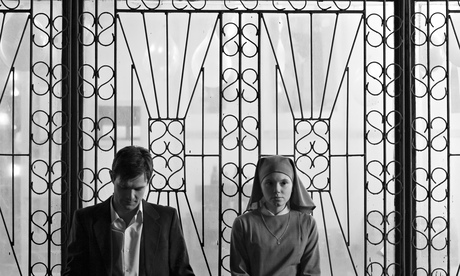
Set in early 60s Poland, this brooding monochrome portrait of an innocent soul at large in a cold and unforgiving world centres upon 18-year-old Anna (screen newcomer Agata Trzebuchowska), a novitiate nun who is sent to spend time with her only living relative, Aunt Wanda (Agata Kulesza), prior to taking her holy vows. An abrasive presence with a desperation-tinged taste for alcohol and men, Wanda was once a Stalinist state prosecutor who admits to having blood on her hands, something she acknowledges with a mixture of pride and contempt. Significantly, Wanda is Jewish, a revelation that causes Anna (nee Ida) to embark upon an excavation of her own family history, revealing awful wartime truths, long buried, now painfully exhumed.
Described by director Pawel Pawlikowski, previously best known for My Summer of Love, as “a film about identity, family, faith, guilt, socialism and music”, Ida blends its personal and political meditations with clarity and grace. Largely consisting of compact scenes, many of which cut on a jarring musical juxtaposition, the film constantly places its characters at the bottom/in the corner of its archaic 4x3 frame, suggesting that they are but bit-part players in a much larger drama, their faces struggling to be seen in the landscape of the larger picture.
Certainly, there’s a story here that goes far beyond the individual; an account of an appalling historic tragedy of which we were graphically reminded last week by the soul-shaking Night Will Fall. This is a world riddled with guilt; cruel and unrelenting. Yet as Anna/Ida increasingly comes to define her own destiny, so her place within the frame alters, Pawlikowski gradually allowing her to find her own space within his arresting vision, compassion cutting through the tragedy, sympathy and strength tempering the bleakness. For all its sombre subject matter, there is warmth here too; personal, musical, spiritual.

